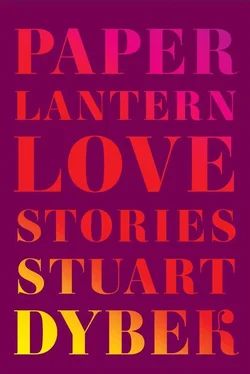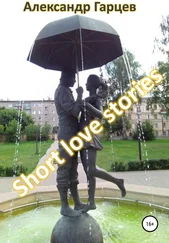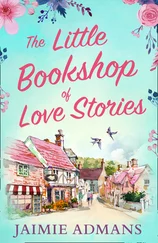I waited for the seiche until three a.m., my body at the ready as if listening for a starter’s gun whose report I supposed would sound at first like a reverberation of thunder. I kept my eyes trained as far as I could see into the formless dark where I imagined that a great moon-glazed wave would rise. Even after I finally gave up and climbed down, I kept looking behind to make sure it wasn’t gaining on me as I walked away.
Like a boy with a kite.
One he’s labored over all afternoon, fashioned from sticks, newspaper, tape, and bakery string. A tail of rags.
Running bareheaded down an empty beach, trailing a tail of footprints through wet sand, shorebirds scattering before him.
How effortlessly the birds mount air, soaring off sideways on gusts of sea breeze, crying out from on high, while the kite stubbornly refuses to rise.
Wind whooshes over foaming water. Despite the drag of the kite he runs harder, faster. If he were a kite, he’d be up there, though it’s no longer a day for launching a kite—even a store-bought kite from Japan made of silk the shade of women’s underclothes, let alone a kite of sticks and newspaper. Maybe that’s why the kite won’t rise; it knows flying could tear it to shreds.
Only when the boy acknowledges defeat, slows to a halfhearted jog, and turns at a cross angle to the wind does the kite sail off sideways on a gust, twisting crazily, barely holding together, but climbing, tugging at the ball of string the boy can’t unravel fast enough.
He pays it out over the ocean. Stands at the shoreline, squinting up as if it has just occurred to him to read the print on the newspaper the kite is made of, but the words are too far away.
Too late for words. The kite is barely recognizable, a speck above the horizon; and is it merely to see what will happen next, or to set it free, that without warning he lets go?
Or a bird, wingbeats flailing for a hold on air.
Futility strips it of grace. When it falls clumsily to earth, the boy gently gathers it up again.
“Try, please,” he whispers, and tosses it back into the air.
Again the bird flaps and falls, weaker for its failed attempt, and the boy gathers it up, gently folds in its wings, and more violently this time tosses it up.
The bird crashes helplessly as if it has forgotten that it ever defied gravity.
“I’m sorry, I didn’t mean to hurt you,” the boy insists.
How beautiful the bird appears, iridescent like a woman’s slip in the gleam of an afternoon in which sun beats drawn shades to bronze.
He traces the curve of its nape. He’s never seen a bird like this before, never before been allowed to stroke his fingertips along such smoothness, to touch a life so different from his own, to hold an inhabitant of air, that mysterious sphere about which the boy can only dream. He feels its rapid heartbeat. Its body heat intensifies in his hands, and suddenly he’s afraid the heat is blood. But his hands are dry. He doesn’t know exactly where he’s inflicted the wound.
He’s never shot anything with the pellet gun but empty cans and factory windows. True, he’s shot at birds—sparrows on wires, starlings in the trees, pigeons on the girders under railroad bridges—but never hit them. He’s either a naturally poor shot or his nerve fails at the last instant so that the pellet whizzes harmlessly into the sky or ricochets with a ringing spark off the girders while a flock of pigeons beat from an underpass and swoop away.
He’s always missed before, perhaps, because that’s what his heart demands. Now he could argue that, though he pulled the trigger, hitting this bird was the merest chance—an accident.
He could argue that, but to whom? Who’s here besides the two of them?
Look what he’s done.
What difference does the truth make now?
* * *
“Like a boy,” she said, as if more to herself.
Then she leaned from the bed and released the shade.
Perhaps the pull cord accidentally slipped from her fingers. The shade, gleaming like a sheet of bronze, shot up, and blinding daylight blazed across the bare mattress, slicing the bed in two.
Heat streamed into the room; pigeons launched from the ledge as if a shot had been fired.
She was on her feet, knocking over the chair, kicking through the clothes strewn beside the bed, and pulling on her slip.
A slip she sometimes didn’t remove. But today, before they’d exchanged a word, she’d stripped off her clothes, no longer shy about the sag of her breasts. Maybe it was simply too close—still air before a summer storm—to lie beside him in the slip. Nonetheless she’d worn it beneath her sundress. She knew he liked her in it from how he drove her into the mattress kissing her throat like he was crazy for her, her shoulder straps slipping down, a breast popped over the lacy bodice, while the silk rode up her jittering legs so that the V of her dark bush showed like a flash of panties.
“Haven’t I been good to you?” she asked, softly. “Haven’t we been happy up here in our own little world? You’re not being honest with me. I made good on everything I said I was going to do. Something else has come up for you. Who is it?—a girl, no doubt more your age. Or have you found another lonely woman?”
He shook his head: It’s not like that , he wanted to tell her, to say, as he’d rehearsed it, I’m getting in over my head with you .
That would sound stupid now. Looking at her standing against the shade-drawn window at the foot of the bed, her eyes too full of hurt for his to meet, he choked up. The choice was between total silence or rising to hold her. He sat naked on the mattress, paralyzed; she released another shade with a violent yank, clearly on purpose this time, so that it clattered up, and light obliterated the foot of the bed.
“So,” she said in that soft voice, unsettling after the racket of the shade, “you thought maybe we’d fuck goodbye.”
She let another shade fly as if releasing a kite.
Sparrows on the wire, starlings in the basswood trees that lined the curb and threw the network of their branches across the shades—city-wise birds—beat their wings and flew away. It might have been someone shooting.
“You’re not being honest with me. You’re dumping me, and I was already so looking forward to seeing you Wednesday,” she pleaded gently—too gently—the way he’d answered her once when she asked him why he’d whisper, No no no , while she came down on him. Too sweet , he’d tried to explain to her then, so gentle it aches .
I never wanted it to go this far , he wanted to say, never wanted to hurt you .
“What happened? I showed a little feeling and scared you away,” she said, answering her own question as she paced, bare feet slapping the floorboards, moving from window to window, tripping the drawn shades the way an executioner might trip the lever on a gallows. “You said I was amazing, that I raised the bar for you. I’m a fool. You really were too young for me.”
With the shades up and the fierce light that obliterated the mattress bleaching her skin from bronze to white, it seemed as if she were fading. Before his eyes, their room, secret in the sun-beaten shadows of drawn shades, was revealed for what it was: an unrented apartment with a few sticks of shoddy furniture.
And when she’d reduced it to that, she stood dressing before him one last time, against an open window that looked out on a blur.
“You opened me up, and then just let go. Like a boy—confused, callow, and cruel.”
Blocks away the spooked birds resettled on other sills and wires, and on the crabapple trees in a little park.
“My pretty boy,” she said, and stepped out, quietly shutting the door.
Читать дальше












